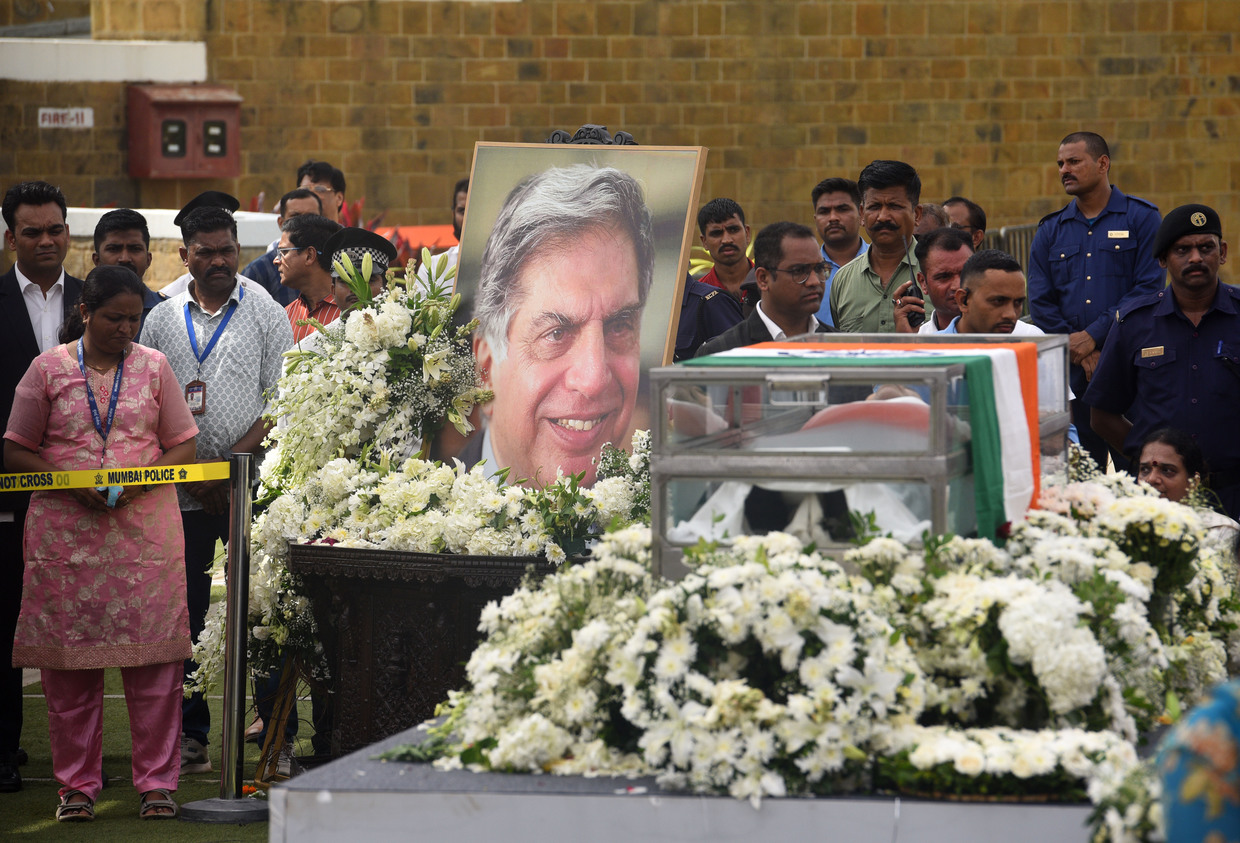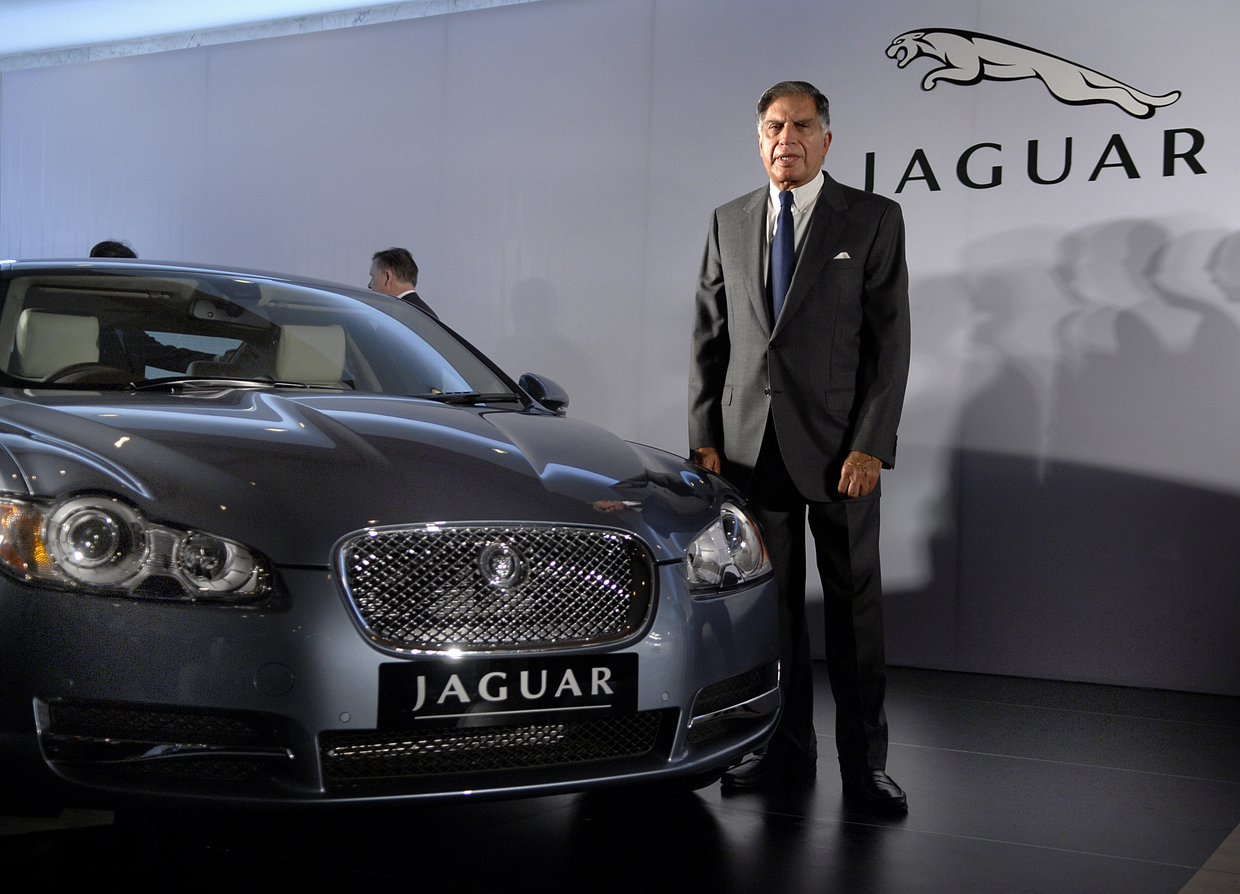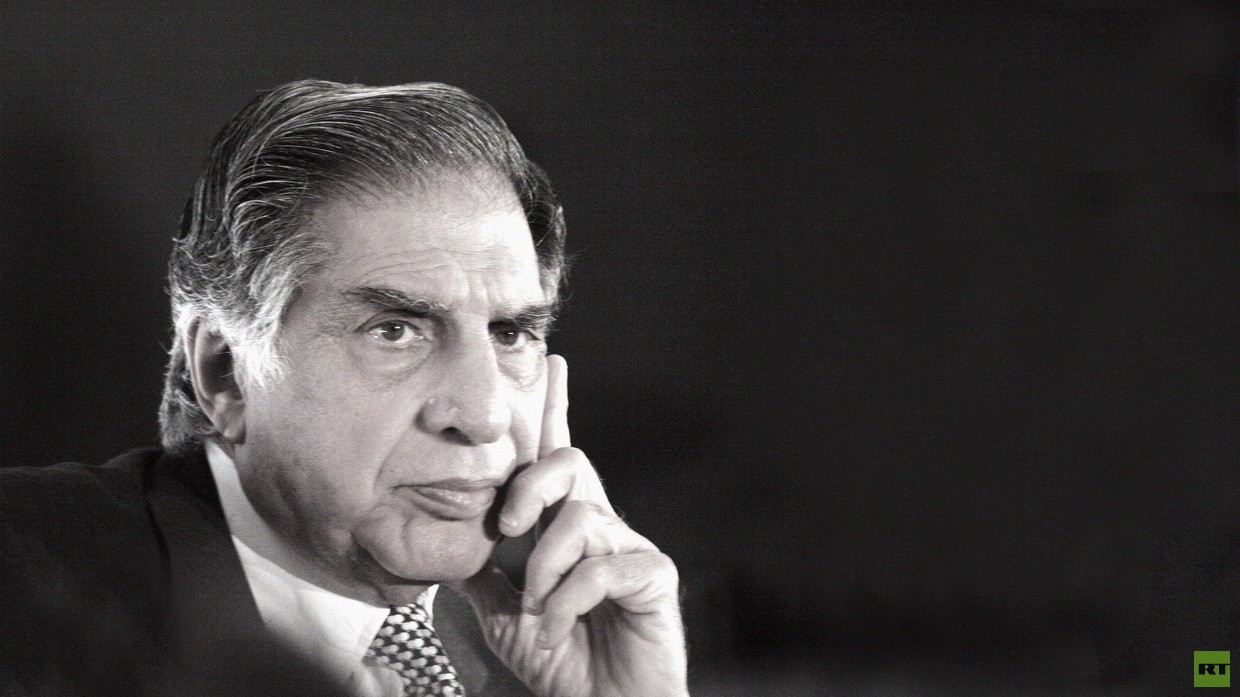It’s rare – and rather beautiful – when an industrialist is remembered not for his net worth or assets left behind, but for his empathy and big heart. Such was the life led by Indian business tycoon and philanthropist Ratan Tata, who passed away late on October 9.
With his death, India lost a visionary industrialist. Budding entrepreneurs lost their biggest source of inspiration. Humanity lost a beacon of selfless compassion. The stray dogs of the country lost their biggest champion.
“I’d like to be remembered as a person who made a difference. Not anything more, not anything else.” These were among the many wise words he often regaled the world with. And what a difference he made. He’s left behind a wake of mourners, shaken by the loss of a kind soul who loved humans and animals alike.
Most of India didn’t have the good fortune to have met him, yet his death feels like a devastating personal loss to all who knew of him. His impact was felt not only in the companies he nurtured, but also in the values of integrity, ethics and nation-building he championed.

An industrial titan
Besides playing the role of one of India’s greatest nation-builders, Mr Tata was instrumental in raising Indian industry to the heights it commands today. He joined the Tata Group – founded by his great-grandfather Jamsetji Tata – as an intern in 1962 and made his way to the top, gradually establishing himself as a visionary industrialist who transformed the Indian conglomerate into a global powerhouse.
“Take the stones people throw at you and use them to build a monument,” said the man who spearheaded a series of bold international acquisitions like Jaguar Land Rover, Tetley Tea, General Chemical, Corus Steel, Brunner Mond and Daewoo. What were considered the heydays of Air India were under Mr Tata’s chairmanship.

From the launch of Tata Nano, the world’s most affordable car, to investments in a number of startups to kickstart their contribution towards the Indian job market, his contributions towards pushing the country forward were unparalleled. And in a world of loud, limelight-hogging CEOs, Mr Tata was a quiet, transformative force who redefined leadership. Reinforcing this statement was a way of life he believed in: “The best leaders are those most interested in surrounding themselves with assistants and associates smarter than they are.”
A generous heart
Beyond the boardroom, Mr. Tata’s legacy is shaped by his myriad philanthropic endeavours. He transformed millions of lives in India through his commitment to social causes, rooted in his family’s long-standing tradition of promoting societal progress. And through Tata Trusts – one of India’s oldest charitable institutions – he championed healthcare, education, sanitation, rural development, animal welfare and skill development.
Despite the Tata Group boasting a market cap of over US$400 billion, Mr Tata is never named on any list of the world’s top billionaires. This is because he has donated over US$110 billion of his wealth, and his family contributes 65% of their income to various causes.
One of his many defining moments came during the Covid-19 pandemic when, in 2020, Tata Sons and Tata Trusts together pledged Rs 15 billion ($178 million) towards efforts to fight the virus, including the donation of personal protective equipment, testing kits and healthcare infrastructure.
In 2021, Tata Trusts – managed by Mr Tata then as an active member of the family – emerged the global leader on the charitable front, according to the EdelGive Hurun Philanthropists of the Century report. Moreover, in the 2023 financial year, the total disbursals made by the organisation stood at Rs 4.56 billion ($54 million), the latest annual report of Tata Trusts shows.
The voice of the voiceless
On October 10, among the scores of mourners gathered at Mumbai’s National Centre for the Performing Arts to pay tribute to Mr Tata, it was his devoted dog, Goa, who stood out. Mr Tata had brought her, a stray pup, home to Mumbai after she began to follow him around during a visit to the state of Goa, after which she is named.
“Never underestimate the power of kindness, empathy and compassion in your interaction with others.” This philosophy that Mr Tata lived by extended to humans and animals alike. Stray dogs could check into any Taj hotel or Tata office, granted this privilege by the man on top looking over them. Mr Tata’s Instagram, too, is riddled with heartwarming instances of his love for dogs, with posts on calls for adoption, requests to feed stray dogs and pleas for urgent blood donations.
He was also the man who turned down a prestigious honour from the British Royal Family to be by the side of his sick dog. Back in 2018, Mr Tata was invited to Buckingham Palace in London to receive a Lifetime Achievement Award in recognition of his philanthropy. However, a few days before the event, one of his beloved dogs fell sick, and Mr Tata refused to leave his side. He eventually cancelled the trip, saying, “I can’t leave him and come,” a decision that moved and impressed King Charles II, then the Prince of Wales. “That’s the man Ratan is,” he said.
Proving without doubt that his advocacy went beyond just platitudes was his latest major project, Small Animal Hospital in Mumbai. The Rs 1.65 billion ($19.6 million) state-of-the-art pet hospital is the first of its kind in India, providing 24/7 emergency care for animals, and carrying forward the legacy of its benevolent founder.
Dearth of controversies
While he lived a primarily blemish-free life, Mr Tata did have his fair share of challenges – from the Niira Radia controversy of 2010 to a rather public spat with former Tata Group chairperson Cyrus Mistry, as well as his failed telecom business.
The Niira Radia scandal emerged from leaked recordings of phone conversations between corporate lobbyist Radia and influential figures from politics, business and the media. Mr Tata’s name surfaced in the tapes because Radia handled PR for the Tata Group. In the conversations, Radia discussed various corporate matters involving Mr Tata and other prominent business figures, which made it appear as though he had tried to manipulate policy in his favour. However, the majority viewed this perception as an exaggeration.
Cyrus Mistry, on the other hand, was affiliated with Shapoorji Pallonji & Co., the largest stakeholder in the Tata Group for three generations. After the death of his father Pallonji Mistry in 2006, he – as the largest shareholder – secured a position on the board.
However, in October 2016, Mistry was unexpectedly removed from his post, a dismissal he contested at the National Company Law Tribunal (NCLT), alleging mismanagement and oppression by the board’s minority shareholders. He also accused Mr Tata of interfering in company decisions despite his retirement. However, both the NCLT and Supreme Court of India, in 2021, dismissed his pleas.
“Apart from the values and ethics that I’ve tried to live by, the legacy I’d like to leave behind is a very simple one—that I’ve always stood up for what I consider to be the right thing, and I’ve tried to be as fair and equitable as I could be,” Mr Tata once said. And he did indeed live a life full of purpose, kindness and unwavering dedication to make the world a better place.
Through his kindness, leadership and generosity, he touched the lives of millions and made a difference to even more. He’s left behind a remarkable legacy that transcends business.
On October 9, most of India felt a sense of acute loss. Perhaps, drawing from the many illustrations and doodles that have flooded the internet since, we can take solace in knowing that he’s now reunited with his beloved dogs.

